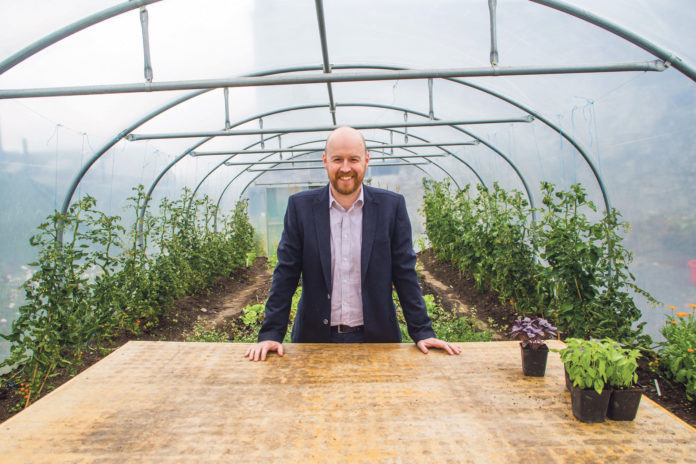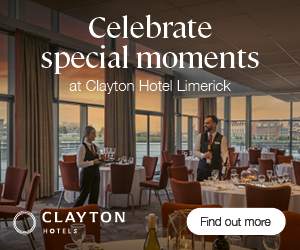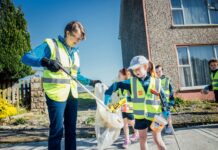
ROSE Rushe reports on a training and support service that gives a work-related foothold in society to former prisoners, vulnerable adults and people recovering from addiction.
BELOW the radar on the Docklands Business Park, the Probation and Linkage in Limerick Scheme (PALLS) will celebrate its tenth anniversary this September when it marks a decade of quietly working at educating, training, mentoring and healing.
Last year, it worked with 113 adults aged 23 and over, 17 of them women, in a holistic environment that works to benefit the individual and equip them with life skills.
Formal qualifications and accreditation in various sectors is an option followed by many.
Captain of this Docklands mission, Ian O’Brien, reflects on the purpose of it all.
“PALLS is about a second chance. It’s about helping some of the more vulnerable members of society who may have made a mistake, to right the wrongs of their past.
“They have all made a conscious decision to come through our doors and address what ever has happened, with a view to taking the next steps in a progression that would take them back with a social value to society,” he explains.
“The benefits here are three-fold, to the individual, to the family unit and to the community. We are here to smooth that transition, to aid the progression.”
Participants and trainees are referred through the Probation Service, which is primary funder, but there are some former prisoners who join electively, perhaps floundering in a hostile or indifferent world after their release.
“Within PALLS we have a number of areas. We have the special Community Employment Scheme (CES) for people who are in recovery from all sorts of addictions.”
There are nine CES candidates working as staff in PALLS alongside as many permanent staff in the various areas such as workshop, administration and horticulture.
“Then we have a Community Support Scheme for people serving less than a year’s sentence. It’s a joint venture between ourselves, the Prison Service and the Department of Justice who have a hand to play in that, as well being part of a joint group to assess candidates for their suitability.
“It’s about aiding that person on release, that stabilising, that re-integration process. It is not an easy transition, O’Brien concedes.
“We try to replicate a normal working environment, from clock in, clock out systems to being appropriately attired in terms of safety equipment and overalls. Participants are not paid anything extra to be here.
“We say that PALLS is a training centre with ‘wraparound supports’ and those supports could be anything from helping them address housing issues or helping them in addiction or whatever the social issue that is affecting the individual.”
“There is that empathy with people as well, the sense that ‘what you are going through today, I have been through before’.”
Courses vary from woodcraft, metalwork and mosaic to horticulture, ceramics and cooking while a printmaking course with Limerick Printmakers is imminent.
We walk through the two storey unit with its workshops and spray booth fashioning furniture commissioned by commercial contract. There are handcrafted kennels, toys and gift boxes; shop fitted units to order and furniture that is up-cycled for sale by ADAPT Domestic Abuse Services.
The cost efficiencies involved in the operation as well as the humanitarian and educational work done are astonishing.
“It costs approximately €68,000 to €70,000 to keep an adult in prison for a year.” He pauses, and states carefully, “You would have a lot of change out of that for the provision of ten prisoners here.”
The gardening module is therapeutic and yields produce to eat and sell: “Again, that feeds back into mind, body, soul.”
Anger management, parenting courses, alcohol and offending courses are provided by Barnardo’s and the Probation Service.
“We also have programmes specific to women. We have a ‘Helping Women Recover’ programme that’s offered through Dr Antonio Browne. It is based on an American model, a 16 week programme for three hours a week.
“We have a non -judgemental approach here. People are treated with respect and in turn, they give respect.
“For a lot of people who have come through the doors here, they have never had respect nor have someone say, ‘well done’. That can be something that can be difficult to accept.”
In that context, PALLS perseveres in the humane works and is the cultural home for many who had none.
Marching to the beat of a different drum
HIS grandfathers served in the Defence Forces, as did three granduncles, and his brother. “It was in the blood, I suppose” and that suited the teenage Ian O’Brien fine.
His paternal grandfather was from Wolfe Tone Street. He moved east and Ian grew up in Clonmel. He married a Limerick woman, Orla Kennedy-O’Brien who has a wedding cake business. They are settled in County Limerick with small children.
“I was lucky to enjoy 20 years in the army. I got to see a lot of things, go a lot of places and meet a lot of incredible people at home and abroad,” he recalls.
Soldier O’Brien did five tours away Kosova, Liberia, Syria, The Lebanon twice over and, as Lieutenant, he soldiered on the border in Monaghan and Dundalk.
He loved it.
Tellingly, he spent his last two years with the Services working in conciliation and arbitration.
“Family was probably one of my reasons for leaving the Defence Forces .
“I had a great career but I did not want to be a weekend Dad. I have two young kids and my older one is starting school in September. I am really enjoying being in the moment.”
“For me, to see how the Defence Forces are being treated, is particularly difficult. A person who serves their country, serves overseas, wears a uniform should not have to survive on Family Income Supplement.”
He computes the recent €10 million allowances package as being worth only 80 to 90 cent a day for the ordinary soldier.
“That’s not enough to make a difference in people’s lives and in their families lives.”
This in contrast with the renaissance experienced in Limerick over recent times.
“If we look at the narrative of Limerick a decade ago or two decades ago it was about crime. There was any amount of adjectives out there to describe Limerick. I have been in and out of Limerick over the last 18 years and have lived here for the past ten and I have never had a bad experience and that’s what I love about Limerick.”
With respect to investment in the city’s rejuvenation and as a Tipperary man on GAA terraces, he looks to the analogy of Limerick’s All-Ireland win and the great sense of pride it engendered.
“They are very proud of their city and they are right to be proud of their city. We all are and should be. It is great to see the narrative has changed. That’s what l would love to see continue.”









